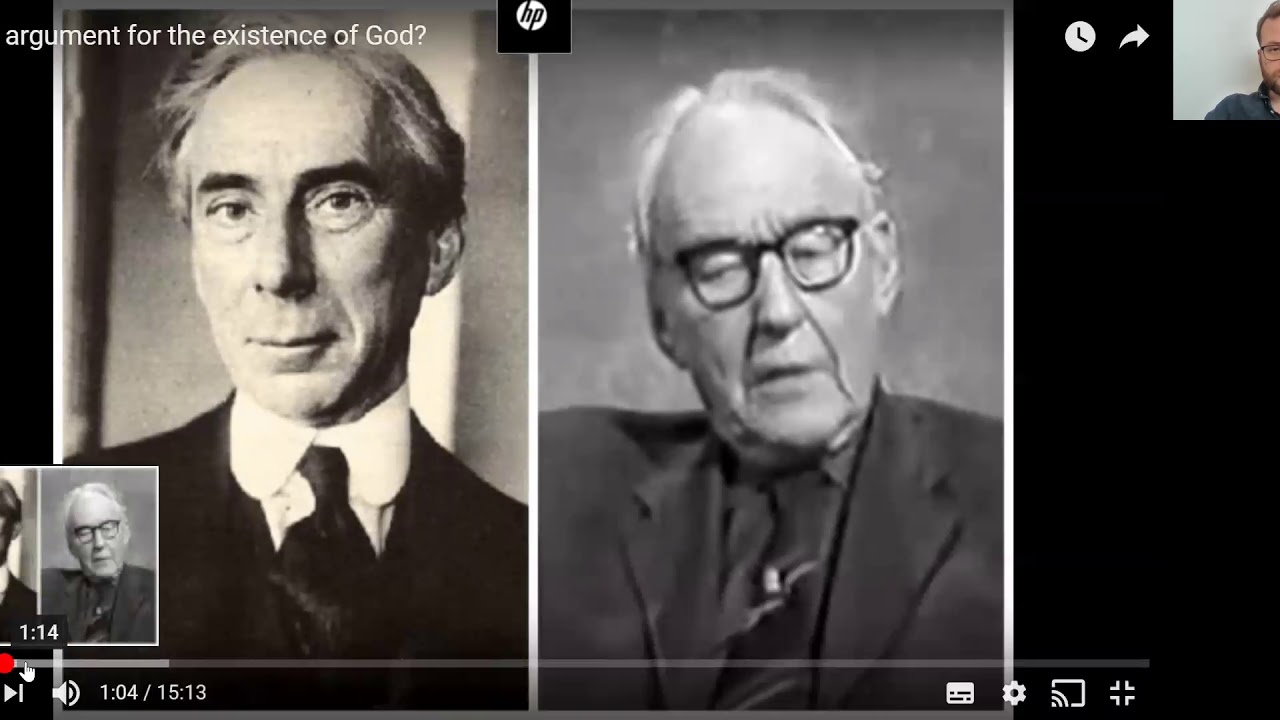If there is an omnipotent, omniscient and omnipresent God, it is obvious that we cannot know Him as an object, or even as an external subject, but only as an active foundation of our own self-awareness, maximally present as such at the very moment that the consciousness, taking possession of itself, wonders for Him. Such is the method of those who understand the subject, like Plato, Aristotle, Sto. Augustine, St. Francis de Sales, the mystics of Philocalia or Louis Lavelle.
When a Richard Dawkins or a Daniel Dennett examines the question of a “Supreme Being” who would have “created the world” and naturally comes to the conclusion that this Being does not exist, they reason as if they were present at creation as external observers and, worse still, external observers of whose intimate constitution the omnipresent God had been kind enough to be absent for a moment so that they could observe Him from the outside and witness His existence or nonexistence. This objectified God does not and cannot exist, for it is logically self-contradictory. Dawkins, Dennett and tutti quanti are absolutely right to declare it non-existent, since they invented it themselves. And yet, due to a kind of unconscious cunning, they took care to conceive it in such a way that the empirical proofs of its inexistence are, strictly speaking, infinite, being able to be found not only in this universe but in all possible universes, since the impossibility of self-contradiction is universal to a maximum extent and in an eminent sense, not depending on the physical constitution of this or any other universe.
If you don’t “believe” in the God of the Bible, it makes no logical or methodological difference in your attempt to investigate His existence or nonexistence, when that attempt is honest. Whatever the case, you can only discuss the existence of a previously defined object if you discuss it according to the definition given at the beginning and not changing the definition in the course of the conversation, which is equivalent to changing objects and discussing something else. If God is defined as omnipotent, omniscient and omnipresent, it is from this God that you have to demonstrate the inexistence, and not from any other god that you yourself invented according to the convenience of what you intend to prove.
The Dawkins and Dennetts method is based on a logical error so primary, so grotesque, that it is enough not only to disqualify them intellectually in that particular domain, but to cast a shadow of suspicion on the whole of what they have written on any other subjects, although it is possible that incompetent people on an issue that they deem fundamental for all humanity reveal some ability to deal with secondary problems, where their emotional overload is minor.
Far from being able to be investigated as an object of the outside world, God is also defined in the Bible as a person, and as a sui generis person who maintains an intimate and secret dialogue with each human being and indicates an inner path to know Him. Only if you look for evidence of that person in the depths of your soul and you do not find them in any way, even following precisely the indications given in the definition, will you be able to declare that God does not exist. Otherwise you will be proclaiming the absence of another god, in which the Bible will fully agree with you, with the only difference that you imagine, or pretend to imagine, that that god is that of the Bible.
When the enemy of faith makes an effort to stick to the biblical definition, it always does so in a partial and caricatured way, with results even worse than in the “creation” argument. Dawkins argues against omniscience, asking how God could be aware of all the thoughts of all human beings all the time. The question is formulated in an absurd way, taking self-awareness as objects that existed per se and questioning the possibility of knowing everyone at the same time ex post facto. But self-awareness is not an object. It is a faltering power, which constitutes itself and conquers itself insofar as it asks for its own foundation and, not finding it within its own limits, it is led to open up to more and more awareness, until it ends in a source that transcends the universe of its experience and to note that from that source, unattainable in itself, comes, in a repeatedly verifiable way, its strength to intensify itself. Ten lines by Louis Lavelle on this subject, or the paragraph in which Aristotle defines God as noesis noeseos, the self-awareness of self-awareness, are worth more than all the works that Dawkins and Dennett could write over infinite earthly existences. A God who “observes” all consciences from the outside is a character from old wives’ tale, specially invented to prove his own non-existence. Instead of asking how this god would be possible, knowing in advance that it is impossible, the qualified philosopher starts from the opposite question: how is self-awareness possible? God does not know self-awareness as an external observer, but as a transcendent foundation of its possibility of existence. But you only realize this if, instead of playing logic with invented concepts, you investigate the thing seriously from your own inner experience, with the maturity of a well-trained philosopher and an extensive knowledge of the status quaestionis.
What kills philosophy in today’s world is amateurism, the meddling of meddlers who, ignoring the very formulation of the issues they discuss, delight in inconsequential and childish thinking, even more ridiculous when adorned with a “science” veneer.

